Hollywood & the Nazis, Part Three: Politically, Culturally, or Artistically Significant
Travis LeBlancAll installments in this series available here
Some of the Hollywood films that were popular in Nazi Germany — or even endorsed by the government there — may surprise you.
The popular conception of Nazi Germany is that everything and everyone in it was hyper-ideological and super-serious. From the way people talk about Nazi Germany, you would think that for entertainment, they would just watch Der ewige Jude and Triumph of the Will on a continuous loop. The reality is that National Socialist Germany actually had a very strong taste for lighthearted entertainment.
In particular, National Socialist Germans were big fans of musicals. The 2nd top-grossing movie in Nazi Germany during the 1930s was The Broadway Melody of 1936. The 3rd top-grossing movie in Nazi Germany during the 1930s was The Broadway Melody of 1938. This was of all films released, both foreign and domestic, for the entire decade.
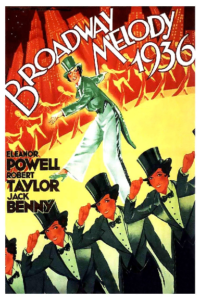 The Broadway Melody was MGM’s prestige musical series. It competed with Warner Brothers’ Gold Diggers series and Fox’s George White’s Scandals series. Warner Brothers’ secret weapon was choreographer Busby Berkley, known for his elaborate, almost psychedelic, kaleidoscope dance routines. Fox had famed Broadway producer George White, who was a rival of Florenz Ziegfeld. MGM’s secret weapon was Eleanor Powell, an astonishingly good dancer. I would say she was the best movie dancer of her era, way better than Ginger Rogers (although Ginger was a much better actress).
The Broadway Melody was MGM’s prestige musical series. It competed with Warner Brothers’ Gold Diggers series and Fox’s George White’s Scandals series. Warner Brothers’ secret weapon was choreographer Busby Berkley, known for his elaborate, almost psychedelic, kaleidoscope dance routines. Fox had famed Broadway producer George White, who was a rival of Florenz Ziegfeld. MGM’s secret weapon was Eleanor Powell, an astonishingly good dancer. I would say she was the best movie dancer of her era, way better than Ginger Rogers (although Ginger was a much better actress).

If there is one thing that Nazis loved more than hating Jews, it was watching people do tap dances with dogs.

I’m just kidding. That’s actually from 1941’s Lady Be Good, which was not released in Nazi Germany. I’m posting it because it’s awesome and I’m unlikely to ever be on the subject of Eleanor Powell ever again. It’s now or never. But I’m pretty sure the Nazis would have liked it if they got a chance to see it.
Nazi Germany also had a taste for light comedy and they found Americans’ capacity for silliness endearing. By all accounts, the big man Hitler himself loved slapstick comedy, with Laurel and Hardy among his favorites. Goebbels enjoyed Shirley Temple movies.
 It Happened One Night stars Clark Gable and Claudette Colbert and was one of the most influential movies of the 1930s. It is considered by some to be the first screwball comedy, and it spawned countless imitators. It is one of only three movies to win the Big Four Oscars: Best Picture, Best Director, Best Actor, and Best Actress. The other two are One Flew Over the Cuckoo’s Nest and Silence of the Lambs.
It Happened One Night stars Clark Gable and Claudette Colbert and was one of the most influential movies of the 1930s. It is considered by some to be the first screwball comedy, and it spawned countless imitators. It is one of only three movies to win the Big Four Oscars: Best Picture, Best Director, Best Actor, and Best Actress. The other two are One Flew Over the Cuckoo’s Nest and Silence of the Lambs.
It’s a simple romantic comedy. Colbert plays the socialite daughter of a famous rich bigwig who runs away to reunite with the husband she eloped with. It becomes a national news story. Gable plays an out-of-work newspaperman — not a “journalist,” mind you. Being a reporter used to be a very masculine job. They had to be willing to climb fire escapes and bribe hotel clerks to get a big story. They had to know how to bullshit their way into buildings. Clark Gable would never be a “journalist,” but he is totally convincing as a newspaperman.
Gable runs into Colbert on a bus, figures out who she is, and figures this is his big break back into the newspaper business. Gable talks Colbert into letting him tag along with her so he can write a story about it by threatening to notify her father if she doesn’t. For most of the film, the two travel the country together. They hate each other at first, but grow fond of one another. There’s nothing political about it at all. It’s just escapist fun.

Joseph Goebbels was extremely impressed with It Happened One Night and instructed German filmmakers to use it along with the Gary Cooper film The Lives of a Bengal Lancer (3rd highest-grossing movie in Nazi Germany in 1935) as models for how to make films.
According to Goebbels, the superiority of American films is that the actors knew how to act naturally. Europeans had these ancient theatrical traditions going back hundreds of years and would act on film the way they did on stage which came off as artificial and unconvincing. But lacking such old traditions, Americans were able to develop a style of acting specifically for film that was more realistic and believable. To Goebbels, It Happened One Night was a textbook example of this.
 The Lives of a Bengal Lancer was based on the memoirs of Francis-Yeats Brown. Yeats-Brown had been an officer in the British Army, spent some time in India, and joined the Royal Flying Corps in WWI. After the war, he became an ardent supporter of fascism. His support of Mussolini cost him his editor position at the Everyman, a magazine that published articles by the likes of G. K. Chesterton and Bertrand Russell. He would later write articles in praise of Franco and Hitler and became a member of the January Club, a discussion group founded by Oswald Mosley. In 1937, Yeats-Brown met Hitler in Nuremberg, whereupon Hitler told him that the film adaptation of his book was one of his favorite movies.
The Lives of a Bengal Lancer was based on the memoirs of Francis-Yeats Brown. Yeats-Brown had been an officer in the British Army, spent some time in India, and joined the Royal Flying Corps in WWI. After the war, he became an ardent supporter of fascism. His support of Mussolini cost him his editor position at the Everyman, a magazine that published articles by the likes of G. K. Chesterton and Bertrand Russell. He would later write articles in praise of Franco and Hitler and became a member of the January Club, a discussion group founded by Oswald Mosley. In 1937, Yeats-Brown met Hitler in Nuremberg, whereupon Hitler told him that the film adaptation of his book was one of his favorite movies.
Nazis believed that The Lives of a Bengal Lancer contained fascist themes. The film is about a small band of British soldiers trying to defend their fort against endless hordes of Bengali natives. In a way, the story reflected how Germany saw itself: as one small nation with the entire world against it. The Nazis declared The Lives of a Bengal Lancer “artistically valuable,” which exempted it from certain taxes, and also “useful for national education”. It was made required viewing for both members of the Hitler Youth as well as the SS. You can watch The Lives of a Bengal Lancer here.

An observation Goebbels made of these two films is that “a hero does not always speak heroically but he act heroically.” This was a reference to the fact that when not in combat, the soldiers in The Lives of a Bengal Lancer would joke around with each other and be light-hearted. In It Happened One Night, Clark Gable was often brash and talked in a very informal way. But when the time came to act, the protagonists would do the right thing and with great courage. Goebbels felt this was a better way to present your protagonist as it made them more relatable. No one can relate to someone who is in hero mode all of the time.
Similarly, the Germans were intrigued that Americans could find a way to add humor during serious moments of a film in such a way that made the subject matter more easily digestible without taking away from the seriousness of the subject matter.
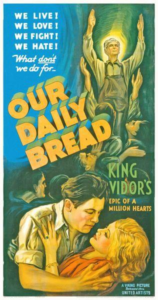 Another film declared “artistically valuable” by the Nazis was Our Daily Bread, directed by King Vidor. [See Jef Costello’s discussion here.] It was a movie that bombed in the United States but found considerable success in Germany. The Nazi government absolutely loved it. It’s in the public domain and you can watch it here.
Another film declared “artistically valuable” by the Nazis was Our Daily Bread, directed by King Vidor. [See Jef Costello’s discussion here.] It was a movie that bombed in the United States but found considerable success in Germany. The Nazi government absolutely loved it. It’s in the public domain and you can watch it here.
Our Daily Bread was a sequel to the 1928 film The Crowd, considered one of the great artistic masterpieces of the silent era. While Our Daily Bread uses the same characters, it stars different actors. Eleanor Boardman, who played the female lead in The Crowd, was now King Vidor’s ex-wife and I imagine they didn’t want to work with each other. After the smashing success of The Crowd, male lead James Murray spiraled into alcoholic oblivion until he became unemployable. King Vidor tracked Murray down in 1934 and found him panhandling on the street to support his alcohol addiction. Vidor told him that he could have the lead role in Our Daily Bread on the condition that he stop drinking. Murray told him to go to hell.
Our Daily Bread starts out in the city. It’s the middle of the Depression. John Simms can’t find any work. Every job he applies for, he finds himself competing with 100 other guys. His wife, Mary, is having to stave off bill collectors every day and they are about to be evicted. Then Mary’s uncle Anthony comes to town and tells them of a piece of unused land he owns that he doesn’t want. He tells Mary and John that if they want to go there and try turning it into a farm, they can have a go at it.
John and Mary take up the offer and move to the farm, but once they get there, they find out that, being city folks, they have no idea how to farm. The next day, a Swede named Chris has his car break down by the farm. Chris is an out-of-work farmer who was on his way to California, but he’ll never get there now. Seeing that Chris actually knows how to farm, John invites him to stay. After one day of seeing how much progress they made having one person around who knows what they are doing, John decides to get more people like Chris around. He figures that if he can find a carpenter, a plumber, and other skilled tradesmen, they could really get the place going. Shouldn’t be too hard. With the Depression going on, there are surely tons of skilled people desperate and out of work. He places some signs on the road looking for tradesmen, and before you know it, he’s got a 50 person commune on the land.
At the first group meeting, the commune asks what kind of government they want. One suggests a democracy, which is met with a low rumble of disapproval. Someone says that democracy is what got them in the mess they are in. Another person suggests a socialist government, which gets a little more interest but no consensus. Chris the Swede says that it should be a dictatorship with John as the leader. This excites cheers from the commune. So what we have here is a fascist cooperative farming commune.
The gang gets to work, and at first, things are going great. One day, this blonde named Sally shows up wearing fancy clothes and furs. She looks and talks exactly like Jean Harlow, but is not Jean Harlow. Between her lowbrow manner of talking and her expensive attire, one assumes that she is either a prostitute or some kind of gun moll. She has a Victrola and plays negro jazz records in her room. Sally represents the decadence of the big city coming into the honest agrarian community.
John starts spending more and more time with Sally, and it is implied that they start having an affair. John becomes unfocused and starts slacking off on his job. Then a drought hits and the crops start withering. Chris tells him that the crops will die unless they can get water in four days. John becomes depressed and considers quitting. That night, he runs away with Sally but then has a change of heart.
He runs back to the commune and tells everyone that there is still a chance to save the farm. They can build irrigation from a stream two miles away, but it would require them working day and night non-stop for the next four days. Most of the commune has lost faith in John, but he persuades them to give the farm one last shot.
The last ten minutes are worth the price of admission alone. The commune comes together and spends the next few days digging a trench from the stream all the way to the crops. At the end, the water comes flowing down on their parched crops. The farm is saved. It’s a pretty inspiring story.

This movie has a few fascist principles. For one, it endorses the Führer principle. He took a group of broken and desperate men and turned them into something greater than the sum of their parts. Under his leadership, the collective learns to be a family. Then at the end of the movie, it shows the commune coming together as one in single-minded determination and it saves itself from a seemingly hopeless situation.
Ironically, Karen Morley, who played Mary Simms in this movie and also starred in the even more explicitly fascist Gabriel Over the White House, would later be blacklisted in 1947 for being a member of the Communist Party.
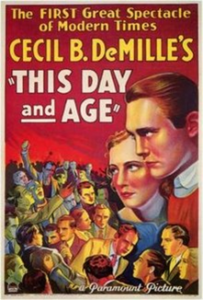 The 1933 Paramount release This Day and Age caused a bit of controversy in several countries. It bombed in the United States. In Canada, the film opened with a disclaimer. In Holland, it was banned for being too fascist. In Germany, where it was called Revolution of Youth, it was a big hit.
The 1933 Paramount release This Day and Age caused a bit of controversy in several countries. It bombed in the United States. In Canada, the film opened with a disclaimer. In Holland, it was banned for being too fascist. In Germany, where it was called Revolution of Youth, it was a big hit.
This Day and Age is one of Cecil B. DeMille’s lesser-known films and appears to have been made for a young audience. All the main characters are high school age, and it has a “kids versus grownups” theme. DeMille hired a high schooler to go over the script to make sure the slang was up to date. The high schooler in question was one Horace Hahn, who would later be a prosecutor at the Nuremberg Trials. He plays the school class president in the film.
The main characters of the story are students at North High School. Across the street from the school, there’s this Jewish shopkeeper named Herman who runs a laundry service. All the kids like him and go there to have their pants pressed and whatnot. But then Herman is killed by local gangster. . . Louis Garrett.
Before I continue, I must rant.
People talk a lot about how the entertainment industry bends over backward not to offend POC. This leads to them always casting whites as villains and sometimes showing whites doing things that only POC do, like catcalling or terrorism. I’ve noticed that they were doing a similar thing all the way back in the 1930s.
Everyone knows that in the 1930s, all the organized crime was being run by Italians, Irish, and Jews. Sometimes blacks. Maybe Poles in some places. Basically, it was immigrant communities. And yet, in an old 1930s movie, they were always giving gangsters these very generic WASP names. “Rick ‘The Razor’ Johnson just started a gang war with Billy ‘Boots’ McDonald!” I don’t know if this was Jewish shenanigans on the part of the studios or if this came from the Hays Office, but I roll my eyes every time hear it. So yeah, I rolled my eyes when I heard the gangster was named “Louis Garrett.”
End digression.
Garrett murders Herman. High schooler Sam Smith witnesses it. But when Garrett goes to trial, the defense attorney runs circles around Sam, and Garrett gets a million people to swear an alibi for him. Garrett is acquitted. One kid complains to the judge and the judge gives him a lecture on the rules of evidence, the presumption of innocence, and blah, blah, blah. The judge doesn’t give a shit, the DA doesn’t give a shit, the police don’t give a shit. The kids are appalled that the system is letting a known murderer just walk free.
The high schoolers formulate a plan and send word out to the other area high schools. The kids kidnap Garrett and take him to a local brickyard where hundreds of kids from the local high schools are waiting. The kids give Garrett a mock trial. When Garrett continues to maintain his innocence, they lower him into a pit full of rats until he starts confessing to all his crimes.
They then march with Garret as their prisoner to the courthouse where they intend to make him sign a confession for the judge. Along the way, they sing traditional and patriotic American songs like “Oh! Suzanna” and “The Battle Hymn of the Republic.” I used to think those songs were kind of hokey, but with hundreds of young men singing them as they march triumphantly with banners waving, they actually make those songs sound kind of fascist. The whole scene has a very fascist vibe. You can watch it here. The scene I’m talking about starts at 1:15:45.
There are several reasons why this movie is fascist. The kids manage to deliver the justice that the grownups failed to deliver. But more than that, they did it through illiberal means. The grownups with all their fancy liberalism and talk of “rights” and “evidence” and “presumption of innocence” let a killer go free. The kids simply torture a confession out of Garrett. The implication is the liberalism is outdated. It is the ideology of the old and out-of-touch. More than that, it simply does not deliver justice. By contrast, illiberalism is the ideology of the youth, and thus the future. And their illiberalism gets results.
It doesn’t hurt that star Richard Cromwell looks a bit like a Hitler Youth poster himself.

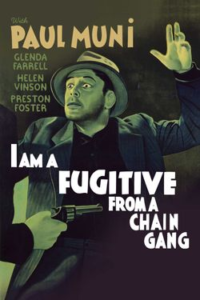 Another movie that was a scathing indictment of the United States legal system was I Am a Fugitive from a Chain Gang, which, by the way, is a movie you have to see before you die (watch it here). It’s pretty intense. It’s not just a good movie, but also a historically important one, as it inspired some real-life prison reform. Despite starring Austrian-born Jew Paul Muni, I Am a Fugitive from a Chain Gang would become the 5th most popular movie in Nazi Germany in 1933.
Another movie that was a scathing indictment of the United States legal system was I Am a Fugitive from a Chain Gang, which, by the way, is a movie you have to see before you die (watch it here). It’s pretty intense. It’s not just a good movie, but also a historically important one, as it inspired some real-life prison reform. Despite starring Austrian-born Jew Paul Muni, I Am a Fugitive from a Chain Gang would become the 5th most popular movie in Nazi Germany in 1933.
I Am a Fugitive from a Chain Gang was based on the true story I Am a Fugitive from a Georgia Chain Gang! by Robert Elliot Barnes, a WWI vet who twice escaped from a Georgia chain and was still a fugitive from the law when the movie was released. Legend has it that he actually worked on the set of the film for a few weeks, but left after deciding it was too high risk. Star Paul Muni met with Barnes in secret to get a feel for Barnes’ speech and manner. Barnes would later be pardoned as a result of the movie.
Fugitive begins with Paul Muni unemployed and looking for work. He goes to a diner and meets another customer. The customer forces Paul Muni to participate in a robbery of the joint. This is a creative liberty for dramatic purposes. In reality, Robert Barnes never denied that he did in fact steal $5.29 in order to eat.

Paul Muni gets hit with a long prison sentence and he becomes acquainted with the hellish chain gang system. Work is brutal and conditions are inhumane. The whole experience is soul-crushing and so Muni makes a daring escape.


Muni holes up with one of an old prison pal before taking off for Chicago. Once there, he gets a job working construction. At first, he is a lowly laborer, but then gets promoted to foreman, then to manager, and then to a fancy office job. In a few short years, he has gone from being a lowly prison inmate to a respected company man and productive member of society. He marries Glenda Farrell (a very underrated actress but alas, not glamorous enough to be an A-list leading lady). Everything is going great.
Unfortunately, his wife gradually turns into a real bitch. When he tries to divorce her for another woman, she rats him out to the police. Georgia is powerless to extradite him, so they work out a deal with him. If he turns himself in and does a few months in jail as a token gesture, the governor will give him a pardon. Muni turns himself in, but then the state of Georgia reneges on their end of the bargain, saying that he must stay inside for at least a year.

Then they renege on that too!

Muni breaks out again and goes on the run. Now that he is broken out of prison twice, the feds are really after him. He is now required to stay on the run perpetually and indefinitely.
The end of the movie is pretty famous. Paul Muni tracks down an old girlfriend to say goodbye. Because he can’t afford to stay in one place for very long, he can only talk to her for a minute. As he is walking away, she asks “How do you live?” and Paul Muni responds “I steal.” It’s a real gut punch.

See, Paul Muni wasn’t a criminal at the beginning of the movie, nor did he turn to crime after his first escape. But now the criminal justice system has turned him into an actual criminal.
A movie like I Am a Fugitive from a Chain Gang would have been useful propaganda for the Nazis because it shows the legal system of a democratic country being unjust, dishonest, and inhumane. It also showed that the Allies were not taking care of their war veterans.
The Nazis liked Hollywood movies that were critical of the democratic style of government. Frank Capra’s Mr. Deeds Goes to Town and Mr. Smith Goes to Washington got a thumbs up from the Nazis. Ernst Correll, head of production for German movie studio Ufa, described Mr. Smith Goes to Washington as “excellent propaganda that ridicules corruption and parliamentarianism in Washington.”
Correll wrote a report on Hollywood films for the Nazi government where he lamented that the fact that Americans often made better National Socialist propaganda than they did:
Unfortunately, I cannot spare our German writers from this reproach: they have seldom expressed . . . National Socialist ideas in the relaxed, lively way that we see in the examples I have just given. Our German writers have been able to find the form to depict nationalist and, to some degree, National Socialist ideas in film. . . . But they have not yet mustered up the freedom to shape their work in the way I have described. Naturally, we will continue making films about our own history. . . . But something entirely new, something like Our Daily Bread, would considerably expand our propagandistic abilities.
Other films were popular in Nazi Germany at the time, but not necessarily with the same cultural impact.
Mutiny on the Bounty (1935), starring Clark Gable as the dashing ship lieutenant Fletcher Christian who leads a mutiny against the despotic Captain Bligh on the HMS Bounty, was a big success in Germany and got rave reviews in the Nazi press. Hitler had a copy of it at his Eagle’s Nest retreat.
The popularity of this movie is evidence that Nazis were not the uptight church ladies they are commonly presented as. After all, Mutiny on the Bounty does show race mixing as some of the sailors go on to marry Tahitian women after the mutiny. If they were okay with a movie that showed race mixing, you can only imagine how degenerate the books they were burning must have been. You can watch it here.

You wouldn’t think that a movie about people flying mail from Point A to Point B would be very interesting, but you have to consider the context of 1933. Airmail was still a novelty and being a pilot was still a pretty dangerous job. They didn’t have radar yet so it was easy to get lost, especially in a storm and especially at night.
Night Flight (1933) is about airmail pilots in Argentina having to deliver medicine to Rio de Janeiro in hazardous conditions to stop an outbreak of infantile paralysis. It’s based on a semi-autobiographical novel by Antoine Saint-Exupéry, who is best known for writing The Little Prince. The Nazis declared Night Flight “artistically valuable.” I Imagine that they admired that it was about people willing to risk their lives for a cause higher than themselves. You can watch it here.

Hitler was apparently a big fan of Garbo. I’m gonna have to hard disagree with the big man on that one. I enjoy Garbo’s silent films, but I could never get past her deep unfeminine voice. She could barely speak English and as many have observed, when delivering her lines, she had a habit of failing to emphasize certain words in a manner that suggested that she didn’t know what she was saying. Of all of Hitler’s beliefs, his conviction the Greta Garbo was a good actress is the one I find most morally reprehensible.
In Hitler’s defense, he was probably watching Garbo movies that were dubbed into German, so he wasn’t hearing the same husky voice and thick accent I hear. I don’t deny that Garbo was a good pantomimer. I would probably like her talkies more if they were dubbed by a native English speaker.
In Queen Christina (1933), Garbo plays the tomboyish Queen Christina of Sweden, who helped end the Thirty Years War before abdicating and converting to Catholicism. It is the last film that she did with John Gilbert and his most significant sound film. Like many of the Nazis’ favorite Hollywood movies, it bombed in America. In Germany, they declared it “artistically valuable.” You can watch it here.

West Point of the Air (1935) is a flying-themed drama set at Randolph Air Force Base in Texas. It’s basically an infomercial for preparedness. Nazis declared it artistically valuable. You can watch it here.
Souls at Sea (1937) features Gary Cooper as an abolitionist trying to stop the illegal slave trade after it was outlawed in Britain in 1807. The boat he is on sinks, and Cooper gets into the only lifeboat. He ends up having to shoot some people to keep the lifeboat from being swamped, and gets put on trial for murder as a result. It’s a movie about lifeboat ethics. Nazis declared it artistically valuable. You can watch it here.
In Captains Courageous (1937), a pampered rich kid falls off a steamliner off the coast of Newfoundland. He’s rescued by a fishing boat captained by Lionel Barrymore. Barrymore won’t take him back to land, nor does he believe that the rich kid is in fact rich. Captain Barrymore came there to fish for three months, and by golly, that’s just what he’s gonna do. So the rich kid joins the fishing crew. Being a fisherman is a rough and rugged life but it toughens the kid up and learns like it. Nazis declared this “artistically valuable.” You can watch it here.

Let Freedom Ring (1939) was one of the last Hollywood movies shown in Nazi Germany. Wicked railroad builder Jim Knox comes into town. He’s super-exploitive to his workers and he tries to force people to sell their land through illegal means. Apparently, some German reviewers believed that the Jim Knox character was supposed to be a Jew. The actor who played him wasn’t, and the movie was written by Jew Ben Hecht. But look at the picture below and you’ll understand why they might have thought that. He does look a bit like a Streicher cartoon. You can watch it here.
One movie I did not talk about much in this article is Gabriel Over the White House, the infamous 1933 “pro-fascism” Hollywood movie that imagines America being taken over by a fascist dictator who then solves all the country’s problems and brings about world peace. I didn’t talk about it for two reasons. First, there’s a lot to say about it, and I think it deserves its own article. Second, that movie wasn’t all that popular in Nazi Germany. The Nazis did declare it “politically valuable.” You can watch it here. [Also, see Jef Costello’s discussion here.]
This concludes Part 3. In the next article, I will be discussing the breakdown in the relationship between Hollywood and Nazi Germany.
* * *
Counter-Currents has extended special privileges to those who donate $120 or more per year.
- First, donor comments will appear immediately instead of waiting in a moderation queue. (People who abuse this privilege will lose it.)
- Second, donors will have immediate access to all Counter-Currents posts. Non-donors will find that one post a day, five posts a week will be behind a “paywall” and will be available to the general public after 30 days.
To get full access to all content behind the paywall, sign up here:
Hollywood%20and%23038%3B%20the%20Nazis%2C%20Part%20Three%3A%20Politically%2C%20Culturally%2C%20or%20Artistically%20Significant
Enjoyed this article?
Be the first to leave a tip in the jar!
Related
-
Will There Be an Optics War II?
-
Counter-Currents Radio Podcast No. 582: When Did You First Notice the Problems of Multiculturalism?
-
Sperging the Second World War: A Response to Travis LeBlanc
-
Civil War
-
The Holocaust Card Can No Longer Be Played
-
Problém pozérů aneb nešíří se snad myšlenky pravicového disentu až příliš rychle?
-
On Second World War Fetishism
-
The Mainstream Blues: Has the Dissident Right Already Won?

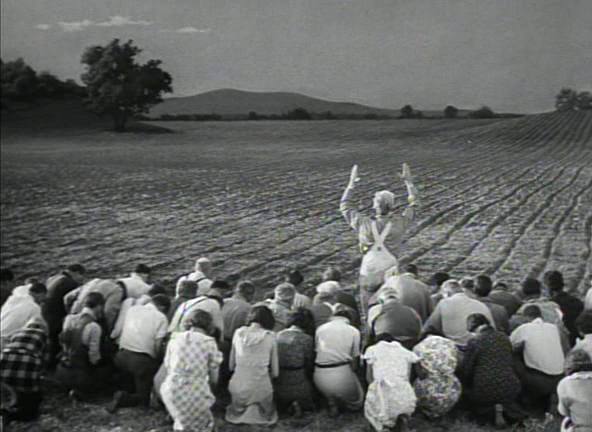
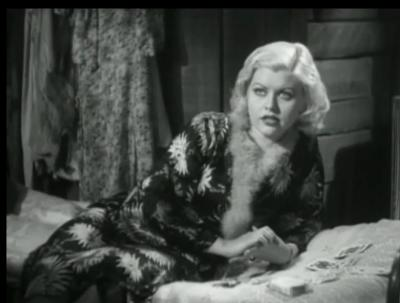
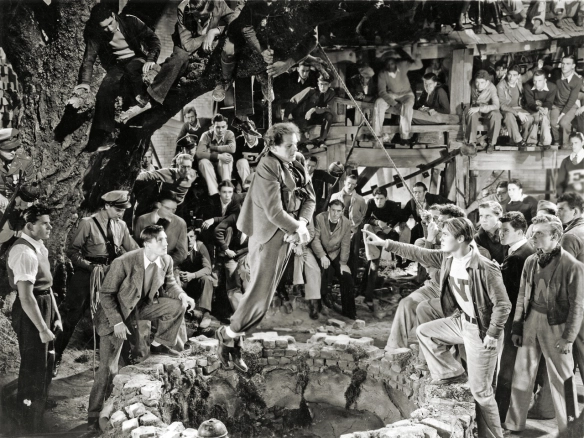
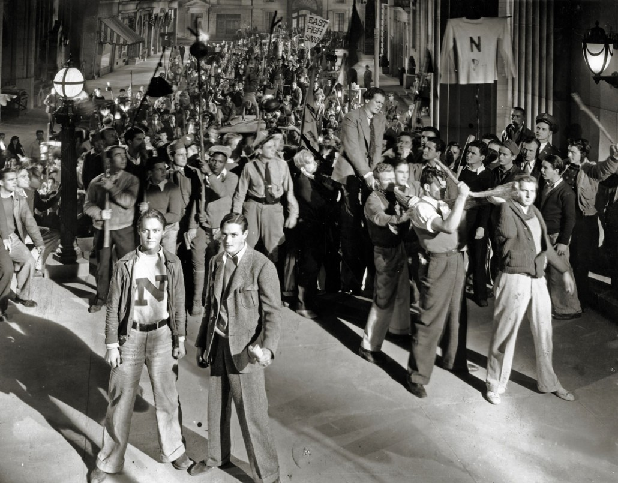
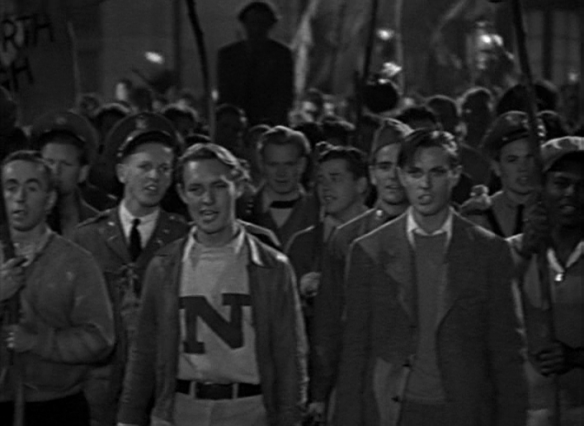
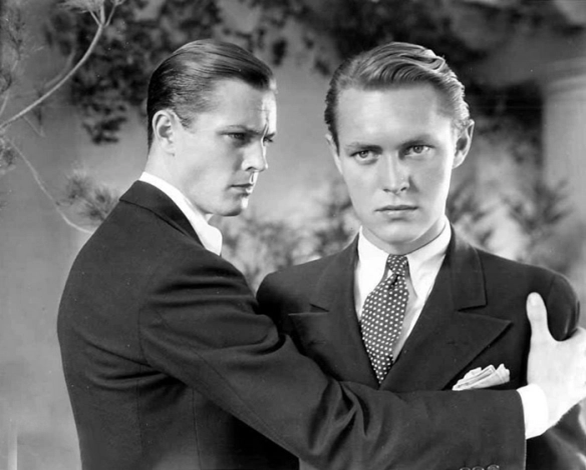

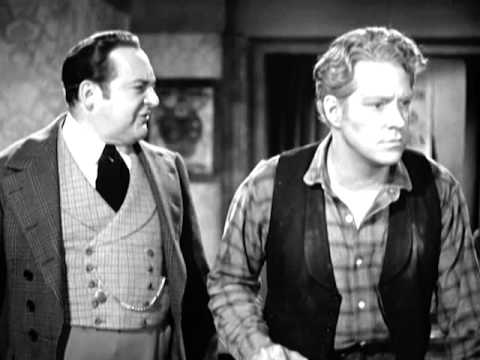
5 comments
Goebbels seems to have thought preWar Hollywood had hit a sweet spot between the outmoded “theatrical” acting you still get in the silent era, and the postWar “method” school, a Judaic style he would presumably have deplored. Arguing that America’s “lack of tradition” gave it an advantage in dealing with new artistic genres is interesting, as many on the Right seem to look to fascism to “restore Tradition” and denigrate America for, well, “lack of Tradition.”
I would have thought Hitler would be a fan of Charlie Chaplin too (bada-boom!), at least before The Great Dictator. I wonder if, as a fan of slapstick, he enjoyed the Three Stooges, again before they went all anti-Schikelgruber. I’ve heard that he based his views of England on Wodehouse’s Jeeves and Bertie Wooster tales, which was a bit misleading.
This Day and Age seems like a teenage version of Fritz Lang’s M. Lang told a story (he told many stories) about being summoned by Goebbels after the film opened and Goebbels had viewed it privately several times. (It was rumored to be anti-Nazi, especially as the original title was “Murderers Among Us”). Expecting the worst, it turned out Goebbels loved the film, thought it was a great expose of the inability of democracies to maintain order, and offered Lang the job of Nazi Film Czar. Lang said he’d think about it, went out, boarded a train for Paris. (Again, that was his story).
Lang’s Mabuse films were also supposed to be “anti-Nazi” which is funny, since Mabuse (Rudolph Klein-Rogge from Metropolis and The Niebelungen) became an enthusiastic party member.
The postwar Hollywood remake of M (which Lang was only distantly involved in) is interesting, transferring the story from Weimar to sunny Southern California; I reviewed it here: https://counter-currents.com/2016/01/an-m-of-our-own/
Metropolis was kind of fascist because it had a theme of class cooperation. “The mediator between the head (upper class) and hands (working class) must be the heart”. It was a much more hopeful interpretation of class conflict than Marxism which advocated for the abolition of class.
The funny thing about Lang was that he was despised by the other exiles in Hollywood. According to Patrick McGilligan’s biography on Lang, this was due to three reasons:
Thea von Harbou was a card-carrying Nazi. As others have pointed out, that gave his Weimar films a certain “fascist” quality. If I recall the Nazis did rerelease his Die Nibelungen films with sound.
Rumor has it the Lang household was flying the Swastika flag during the Reichstag elections. Also, Lang was said to have attended a film conference hosted by Goebbels.
Lang wasn’t penniless when he arrived in Hollywood. In fact, he already had a contract with MGM. He made a film in France before he came to Hollywood called, Liliom. He had also cleaned out his bank accounts slowly before he left Germany.
Great series! The real history of the Third Reich (and how it fits into a general 1930’s zeitgeist context) is far more complex and interesting than the cartoon version usually served.
The 1936 romantic comedy GLÜCKSKINDER is often named as the UFA/Goebbels version of IT HAPPENED ONE NIGHT. It is a very good movie, and referred in INGLORIOUS BASTERDS.
Garrett is an Irish name, so since you noted the Irish as among the ethnic urban gangs of the 20s and 30s, it’s not an anachronism. Also, McDonald is either Irish or Scots, certainly from the Gaelic, so how does it qualify as WASP? White, yes, and Protestant maybe, but not Anglo-Saxon, aka English.
Comments are closed.
If you have Paywall access,
simply login first to see your comment auto-approved.
Note on comments privacy & moderation
Your email is never published nor shared.
Comments are moderated. If you don't see your comment, please be patient. If approved, it will appear here soon. Do not post your comment a second time.